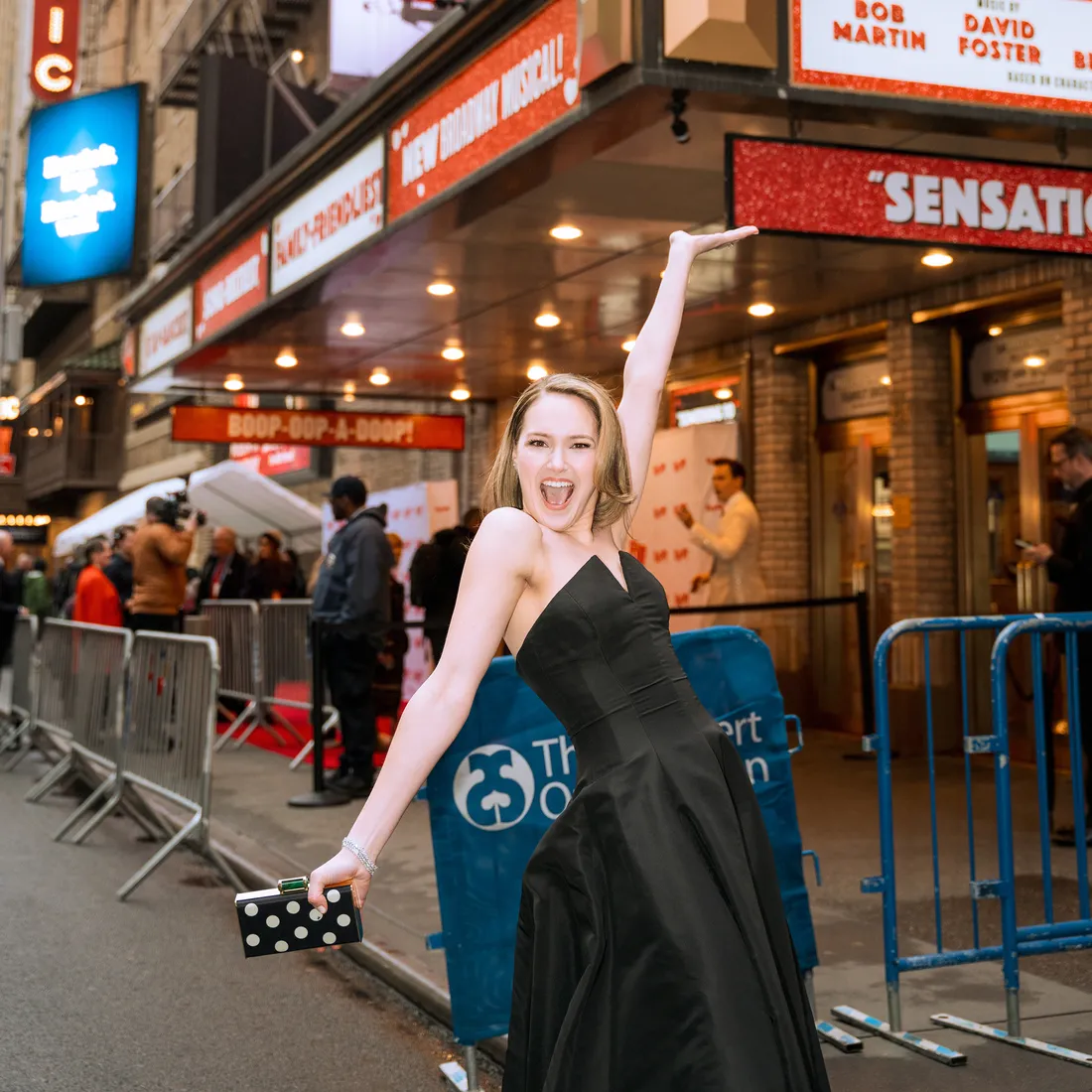Rebecca Lee ’24, L’27 and Mackenzie Kirsch ’26 found a shared sense of purpose in the Army ROTC—one that has shaped their academic journeys and guided them toward future careers in military law.

Political science major Mackenzie Kirsch ’26 is a second lieutenant in the Vermont Army National Guard. She completed her ROTC training at New Mexico Military Institute and transferred to Syracuse University.
Lee—a second-year student at the College of Law and magna cum laude graduate in political science and international relations from the Maxwell School of Citizenship and Public Affairs and the College of Arts and Sciences—earned a legal education delay from the Army’s JAG Corps to attend law school. Kirsch transferred to Syracuse University after earning an associate degree in criminal justice from New Mexico Military Institute (NMMI). Through the Army’s Early Commissioning Program, she is pursuing a political science degree while serving in the Vermont Army National Guard.
Both commissioned as second lieutenants, Lee and Kirsch were introduced by Lt. Col. Matthew Coyne, who leads the University’s Army ROTC program and recognized their common goal of becoming judge advocates. “Rebecca has helped me with everything from LSAT prep to navigating law school opportunities,” Kirsch says.
This summer, Lee will intern with the Transportation Security Administration’s Office of the Chief Counsel, while Kirsch heads to annual training with her National Guard unit—and a grueling 18.6-mile ruck march.
They recently sat down to reflect on their ROTC journeys and what comes next.
What attracted you to Syracuse University?
RL: I grew up in northern Virginia and had this idea of service instilled in me early on in my childhood. My dad served, and I have some service members of different countries in my family line. I applied to the military academies but quickly realized I wanted to engage in a more traditional college experience, and so it spurred my interest in ROTC. Syracuse University offered the best of both worlds.
MK: My dad attended New Mexico Military Institute for high school, and I found out about the Early Commissioning Program when the recruiter told me all about the scholarship and career opportunities. Coming to Syracuse University, everything is pretty much covered, that’s why so many of us are attracted to attend. Also, my grandmother grew up in Buffalo and graduated from Syracuse, so I did a double legacy, going to NMMI following my father and Syracuse following my grandmother.

College of Law student Rebecca Lee ’24, L’27 (left) and Mackenzie Kirsch ’26 share a common interest in becoming members of the Army’s JAG Corps.
How have the leadership skills you developed through ROTC helped you?

Lee, a second lieutenant in the U.S. Army, earned a legal education delay from the JAG Corps to pursue a degree at the College of Law.
RL: Our ROTC program connects older cadets to younger cadets, and these are the people who you confide in, ask personal questions and look up to for advice. You get to know everyone and learn a lot about peer leadership, which is incredibly hard and even harder if you haven’t been in that position before. It teaches you to stand up above the crowd. It shows character and moral courage. ROTC teaches quick decision-making and being able to execute well-thought-out decisions in high-pressure situations. As a leader, being able to take what’s coming at you and turn it into something good is a very valuable skill.
MK: I’ll add that one of the biggest skills I’ve gained is public speaking. Leading your peers and doing public speaking in meetings every single week in front of colonels, majors and other high-ranking military officials is definitely a valuable skill. In ROTC, you have to brief an operation order in 15 minutes at camp, think quickly on the spot and make decisions. Making these split-second decisions is a skill that can translate into the private sector and in everyday decisions in regular life.
Tell us about the support you receive from the University’s military-connected community.
RL: When I first got here in August of 2020, it was right before the National Veterans Resource Center opened, so I was able to watch its development and the creation of the Stalwart Tactical Athlete Center. The University has poured a lot of support into the ROTC program—not just with these wonderful facilities but also showing up for us. Members of the Office of Veteran and Military Affairs [OVMA] speak to us all the time and serve as mentors, and it creates a very welcoming environment. I was connected with Professor Beth Kubala at the law school, and she’s served as a mentor to me as well as several others. The University does an incredible job with funding these programs and financial support—the housing grants are a big help for a lot of cadets.
MK: The support for the military here at Syracuse is second to none. Syracuse University really stepped up with the Early Commissioning Program and that is why so many of us come here. The OVMA has done a wonderful job supporting us. Jen Pluta [G’15] has helped us with resume workshops and getting civilian jobs for those of us going into the National Guard. And there are so many others who have been supportive in answering questions, and their doors are always open for us. It’s definitely a great experience, and I’m glad that I chose to come here.

Lee and Kirsch value the leadership skills they learned through the Army ROTC.
What advice do you have for prospective students considering school and service?
RL: You’ll want a place that you know will provide you with the best opportunities to grow and learn in your leadership and also set you up for success with your education and the opportunities that you can gain. Once you’re in an ROTC program, adaptability and remaining flexible is important. Keep yourself centered and grounded because it makes a difference. At the end of the day, it’s your ability to cope and maintain yourself that makes the difference, and it shows through.
MK: The Army is what you make of it. It’s important to walk in with an open mind and willingness to learn. When you’re a cadet, keep fighting, keep pushing. It is your time to make mistakes and learn from them, so when you commission as an officer, you have experience that will prepare you for leading soldiers. You’ll have excellent cadre members. They are there to teach you, so don’t be afraid to ask them any questions you have.



